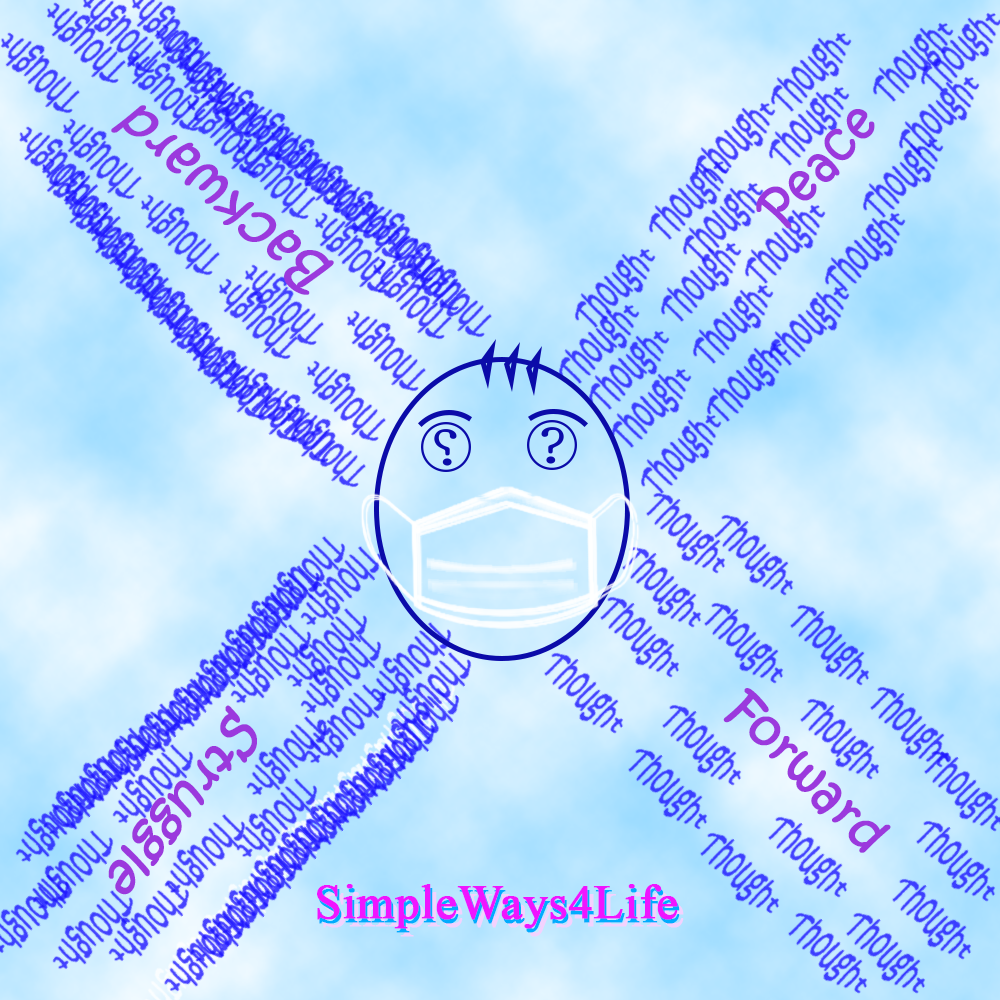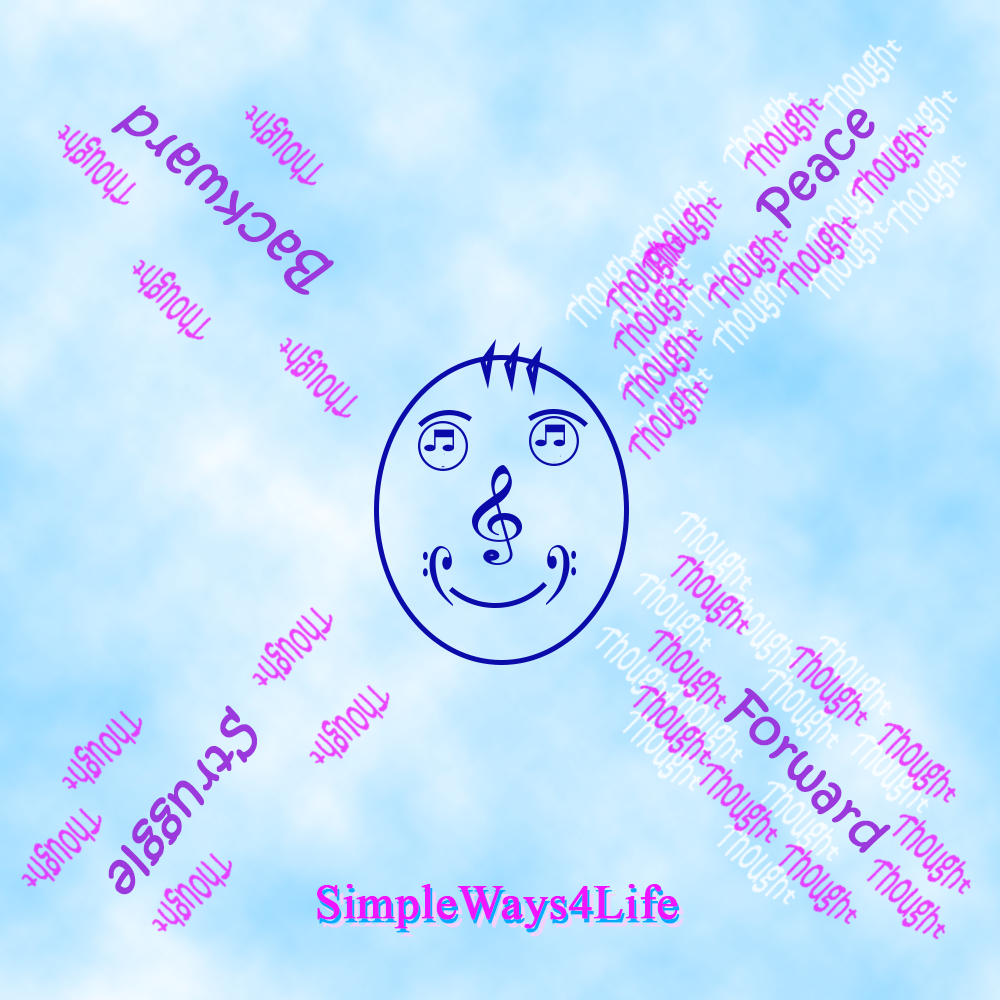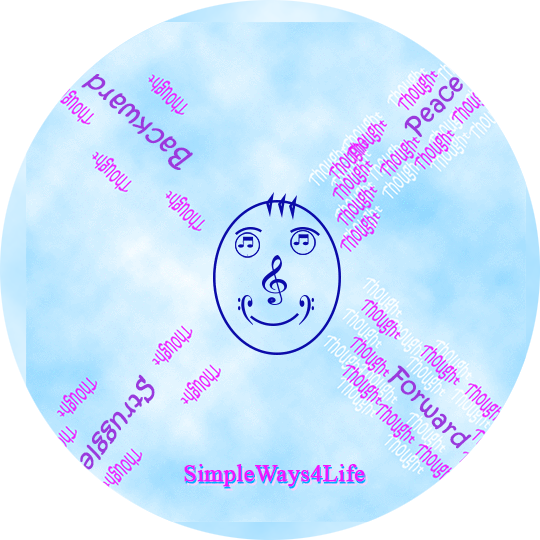The best definition I found of mental well-being is ” Mental wellbeing is having the capacity to live a full and creative life, and having the flexibility to deal with life’s ups and downs. It’s all about resilience. It involves our thoughts and our feelings. It requires an awareness of our feelings and emotions. ” by National University of Ireland
To be able to understand the relation between Mental well-being and meditation we need to understand the effect of thoughts on our life and the relation between thoughts and meditation.
What meditation can do is bring us to the silence, to the present. Meditation is a technique for quieting the mind, shutting down the mind chatter so we can be still and one-hundred perecent present with the now.
Dr. Robert Puff, Reflections on Meditation
But why the mind is chattering?
Our mind is designed as a faithful alley that serves us by acting quickly to bring us the information and solutions we need. That’s a great favor, 3 cheers for our minds. But wait for a little, don’t rush to conclusions. If our mind is not trained to serve us in the way we need, it will be like having a pet with ADHD ( attention deficit hyperactivity disorder ). It tries to please you by rushing to you all the data it can deliver quickly in response to your attention wherever your attention goes. If your attention strays, you will suffer what they call a monkey mind.

Thoughts are streaming in our mind constantly as a narrator to our moment to moment life. When we pay attention to any of these thoughts, our mind jumps to respond to our focus. Whether we are digging in our past to relate to this focus point or extrapolating it to future results, our mind generates a stream around this idea. This stream is not cut when we jump to focus on another thought brought by the narrator. A new stream of thoughts is generated and so on. Those streams are added up together and they are flowing in all directions forward, backward, to bliss and to struggle. This disrupts our mental well-being and gives rise to anxiety. You can read more about the effect of thoughts on our health in this post: The One Secret behind Well-Being
Can this mind chattering be useful?
You may say: still, that’s a great support when I’m handling a lot of tasks at the same time. It may seem so but, when your mind is in such a hurry, it brings you these data from those stored through previous experiences even if you were anticipating a future event, it lets your imagination be a reflection of the closest situation it can find stored in its directories. So, your perception of the future will be a repetition of your past experiences.
Does this mean that our mind is limited?
Again, don’t rush to say it is limited. It is not. It is more powerful than any available computer in storing and fast retrieving data. The problem lies in which data is stored in it and how it is tabulated and its hierarchy.
Don’t take my word for granted before you have a look to Scientific American article (link is here) saying:
Yet neurons combine so that each one helps with many memories at a time, exponentially increasing the brain’s memory storage capacity to something closer to around 2.5 petabytes (or a million gigabytes). For comparison, if your brain worked like a digital video recorder in a television, 2.5 petabytes would be enough to hold three million hours of TV shows. You would have to leave the TV running continuously for more than 300 years to use up all that storage.
What Is the Memory Capacity of the Human Brain?
Paul Reber, professor of psychology at Northwestern University, replies
How data is stored and tabulated in our minds?
Actually the data stored in our minds are memories that stored from either real experience or a thought stream that was loaded with emotions. Those thoughts that ignite emotions are stored as life experiences equal to the situations we had physically experienced.
Those memories loaded with the highest emotions are loaded first from the mental closet. This is not the only parameter affecting which thoughts to be retrieved and linked to the stream of thoughts generated around a certain idea we focused on. The ego or the self plays a vital role in keeping us safe by raising alerts on any probable threat to us. Those warnings load frightening alerts to the thought stream to keep us safe. Unfortunately, many of these alerts although having a noble goal, tend to keep us in our comfort zone. It resists any new change to what we were used to.
Is there an escape?
So far based on the human heritage and current experiences, there is only one, to live fully in here and now. This present moment is our ultimate reality and any negative past experience or frightening future one is not here and now. You can be in the present moment only if you quiet the streams of thoughts storming your mind. Here humanity came with meditation as a solution.
If you return to Dr. Robert Puff Quote at the very beginning of this post (click here). It explains that meditation is a technique to quiet the mind and stop its chattering. This can be done in a very simple practice of focusing your attention on a constant repetitive item here and now as a ticking clock or your breath which is with you everywhere. The technique of breath meditation is the most simple, most effective and most handy one to start. The beauty of it is that you can do it anywhere, anytime. Simply focus on your inhale and exhale without changing anything. If your mind brings an idea, let it go, it will come again after meditation. Return your attention to your inhale and exhale.
If I started meditation, What will improve?
That’s a big topic to squeeze at the end of this chat. So, I will jot down the headlines below. Then, I will delve deep in a coming post to each of them.
- You take a break from the stress.
- Increase Syncronsity in your life.
- Have a chance to savor your meal
- Be aware of your moment.
- Savor the views you encounter in your day.
- Digest and reflect mindfully on any situation.
- The crown benefit, listen to the subtle sound of your soul.


